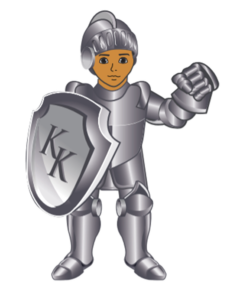Toddlers start to learn or develop skills depending on the environment they get exposed to with or by their parents, caregivers, or siblings around them.
Toddlers always want to learn, trying to walk independently, stoop and fall back, or even trying to want to feed themselves is quite a good sign. Parents ought to take advantage of that and allow them to explore, but closely watch them as they try to do things by themselves.
The following are some of the skills that toddlers need to learn;
Language Skills.
Language skills in toddlers involve a three-step process that entails hearing the words repeatedly, making an association between familiar words and what they represent, and attempting to imitate or speak the words.
Reading books, trying to utter some simple words, laughing and other literacy skills often are learned every day when interacting with your child.
Motor Skills
During the toddler years, children tend to explore a lot by themselves. They try to walk, climb on a chair and eat on their own.
There are two types of motor skills, namely: Fine motor skills and gross motor skills.
- Fine Motor Skills.
It involves using fingers or hands to move objects. It is less strenuous to the muscles. Grasping, holding, pinching, gripping involve the smaller muscles in the fingers and hands.
Toddlers as early as between the ages of 5 and 6 months start to grab objects around them, study has shown that there is a link between fine motor skills development and language, literacy, and the brain. Between 6 and 12 months they usually start to play with hand-held toys and at 18 months most toddlers will attempt to move more complex skills such as drinking from a cup independently.
2 to 3 years, toddlers become more sophisticated; they might show interest in scribbling, drawing, or even writing.
- Gross motor skills.
Basically, these skills involve the movement of larger muscles in the arms, legs, and torsos, they include crawling, running, and jumping. When a child’s gross motor skills build-up, they don’t keep calm. As early as 2 months, they start to kick their legs, despite a few falls and bumps, they safely explore their environment such as visiting playgrounds, dancing to the music at home, pushing or riding toys.
Early learning skills.
Babies can start to sing along to simple songs and nursery rhymes, this helps them to master words, recognize patterns and develop rhyming skills.
Exposing a toddler to a book enables them to recognize letters, numbers, shapes, and pictures when they come through written materials since they are curious and ready to explore.
Imagination Skills.
Fifteen to 18 months old toddlers pretending to be grown-up, might imagine they are driving a car. At this age, they sing and dance to music imagining fantastic things like floating in space, diving, and flying. They also tend to involve themselves in messy plays, such as digging sand and playing with mud.
Engaging toddlers in plays and creative activities both indoors and outdoor activities like nature walk, describing things you see in the sky like stars, clouds, and the moon stimulates a toddler’s imagination.
The screenplay should be limited because children learn and grow best through real-world experiences like playing outside, creative plays, and physical plays with parents or siblings.
Self-regulating skills.
It is the ability to control one’s behavior and emotions, thoughts, and attention. Toddlers cannot control or regulate their emotions without an adult helping them to learn to do so independently.
Toddlers will always develop at different rates, and hence it is upon parents and caregivers to be able to notice the progress; when they are developing new skills, learning, and exploring the surrounding environment, additionally seek pediatric help if your child seems to be struggling.
